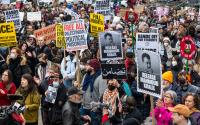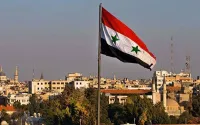25 February 2007Raymond Whitaker
When Tony Blair rose in Parliament last week to announce that 1,600 troops would be withdrawn this spring from Iraq, he did not say that an almost equal number would be sent to Afghanistan at roughly the same time. That news only emerged a day and a half later.
Why did the Prime Minister keep silent? Because to have announced the two deployments simultaneously would have made clear that all the problems the military have been complaining about, notably the "overstretch" caused by sending undermanned, inadequately equipped forces into two hostile environments at once, have not been solved.
What Mr Blair managed to disguise was that his long-awaited announcement of the beginning of the retreat from Iraq was in fact a slowdown. Military chiefs were desperate to pull 3,000 troops out of Iraq by summer; instead they got only half that number. The rest may leave by the end of the year - if conditions allow. But as one officer with experience there said: "The security situation on the ground in Basra is very volatile. Nobody knows what is going to happen day to day."
With talk in military circles of further much-needed reinforcements likely to be sent to Afghanistan in coming months, not least because other Nato members are refusing to provide them, the strain on resources can only increase. That will expose the deficiencies in equipment even more starkly.
One of the most outspoken figures on the Ministry of Defence's failings has been Bishop Thomas Burns, the senior Roman Catholic military chaplain. This weekend he returned to the attack, saying the armed forces were "frustrated by restrictions, checks and delays that are placed on them but not on their opponents", an apparent reference to tight rules of engagement and concern in the ranks about the charges of mistreating prisoners levelled at Colonel Jorge Mendonca, whose trial collapsed when a judge ruled he had no case to answer.
Bishop Burns went on: "Their [the military's] activities are often jeopardised by poor equipment, outmoded vehicles and inadequate apparel. The Government has a moral duty to equip them for the task they give them. Anything less risks lives and is morally reprehensible."
An inquest into the death of Sgt Steven Roberts, killed during the Iraq invasion after he was ordered to give his body armour to another soldier, learned that the MoD held back from ordering enough protection for all the troops because to do so would have signalled that the decision for war had already been taken. That was nearly four years ago, but ministers still stand accused of refusing to accept the financial consequences of intervention. According to military critics, new equipment is delivered only after the pleas from forces on the ground become deafening.
Bishop Burns's reference to "outmoded vehicles" can be taken to refer particularly to the lightly armoured "snatch" Land Rover, which is defenceless against the more sophisticated roadside bombs being used in Iraq and Afghanistan. More than a quarter of the soldiers killed in Iraq since the invasion have been in "snatch" vehicles, but its replacement, the Bulldog, is only now beginning to arrive in any numbers in both theatres.
As the services compete for spending, army generals are becoming increasingly vocal in demanding an expansion of ground forces. But they fear the Government's priorities lie elsewhere, as shown by the disclosure that Mr Blair has been secretly talking to the US about siting the European element of the "Son of Star Wars" missile defence system in Britain.
All this contributes to frustration among many soldiers. Rather than resources being fitted to the mission, the mission has constantly been redefined to fit the resources. In January 2003, Britain's vision for postwar Iraq was "a stable, united and law-abiding state" that would pose no threat to its neighbours or to the world, "and providing effective representative government to its own people".
This month, the Ministry of Defence set out less ambitious conditions for withdrawal, including "a manageable level of threat from insurgents" and "effective local government", as well as the ability of Iraqi forces to deal with the terror threat and coalition forces to back them up. As Michael Knights and Ed Williams, two Iraq experts, pointed out in a paper for the Washington Institute for Near East Policy, "even these goals are far from being achieved".
The consequences for the people of Basra are obvious, but the implications for the troops who have served there were spelled out by one officer: "When I think of all the good Iraqi people whose lives were under constant threat, just because they worked for the coalition forces, I feel frustrated, and worse."
The inventory of disaster
Warrior
A light armoured vehicle designed to carry seven fully armed and equipped troops, it has proved crucial in protecting against roadside bombs. But MPs have complained that only the driver has air-conditioning, which is unacceptable in the summer heat of Iraq and Afghanistan.
SA80 rifle
After years of problems and expensive modifications, the A2 version was introduced in 2003. But fine sand can still obstruct the mechanism, and troops in Helmand, Afghanistan, complained that "bits fell off" in the heat of battle.
Bulldog
The replacement for the 30-year-old "snatch" Land Rover, which is all but defenceless against the more sophisticated roadside bombs being used in Iraq and Afghanistan. Though lighter than the Warrior armoured vehicle, the Bulldog is almost as well protected. But it remains in short supply.
Boots
Before the invasion of Iraq, troops complained of their boots "melting" in the desert. The MoD later admitted that the rubber soles were disintegrating rapidly in the heat. The new boots from Spain now issued to all frontline troops can withstand temperatures of up to 300C, but many soldiers still prefer to buy their own, along with other items of personal equipment such as desert goggles.
http://news.independent.co.uk/uk/politics/article2303007.ece






